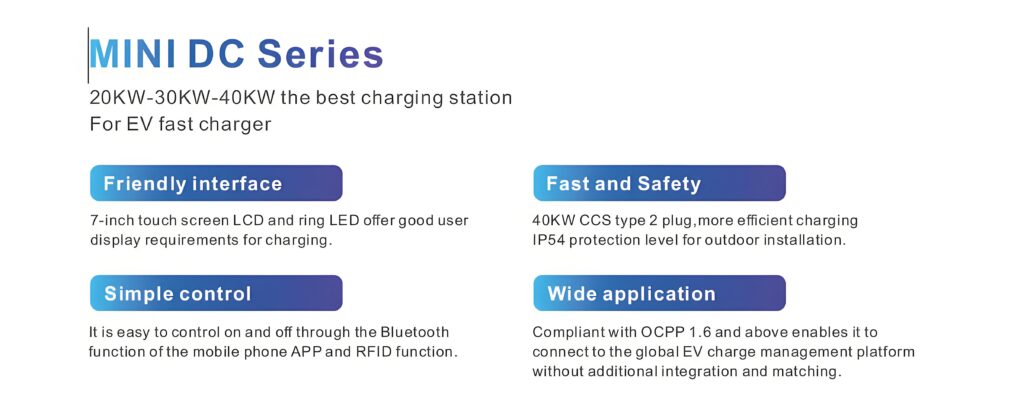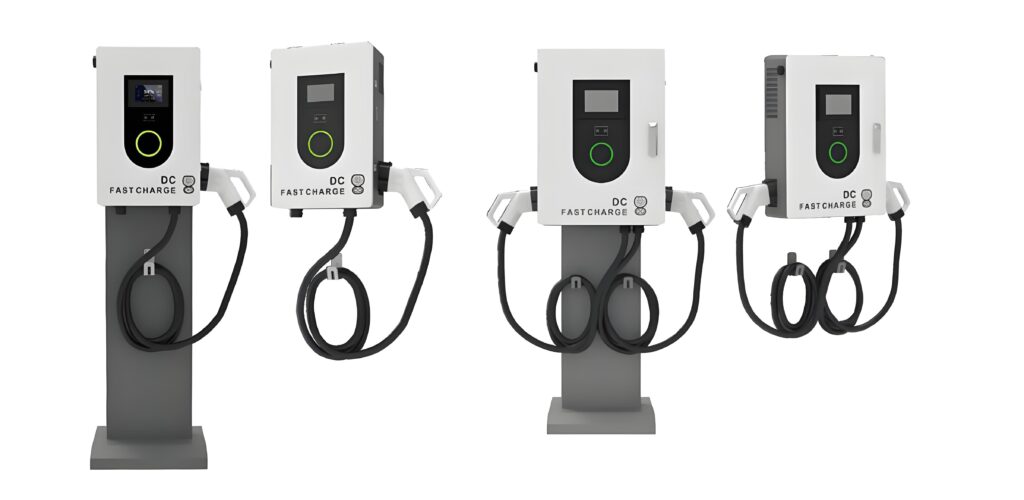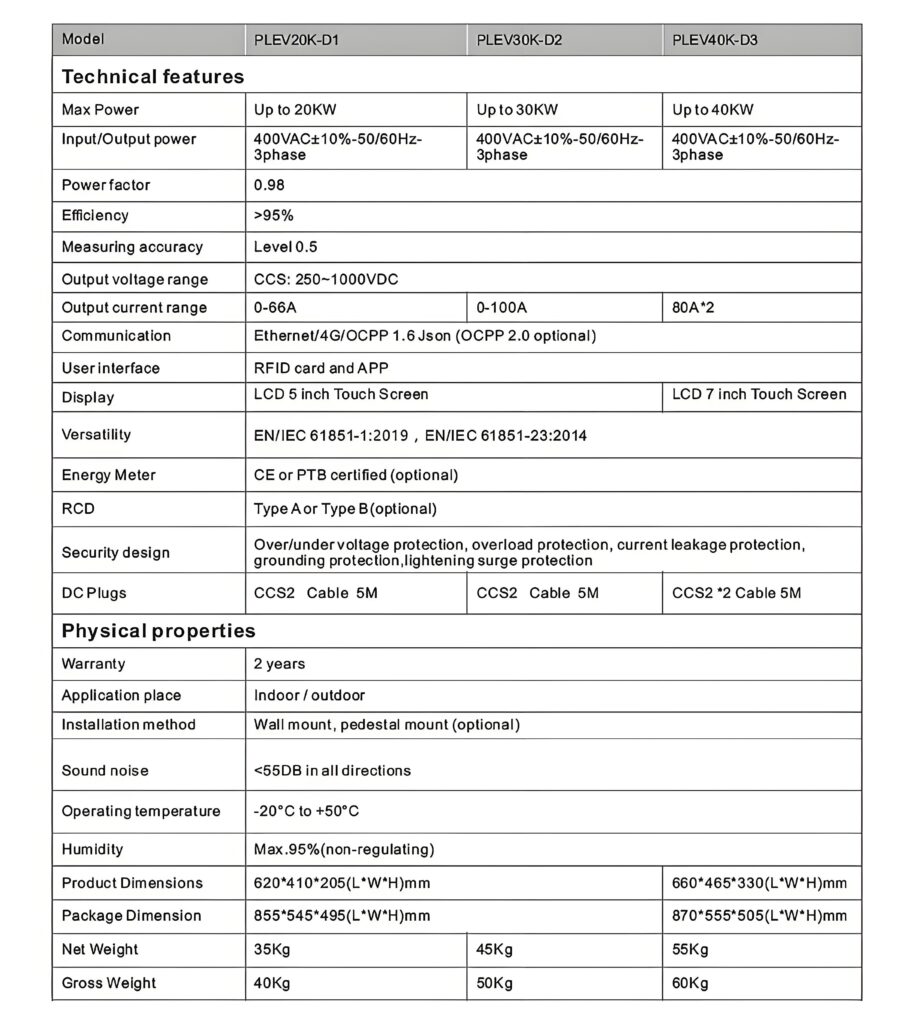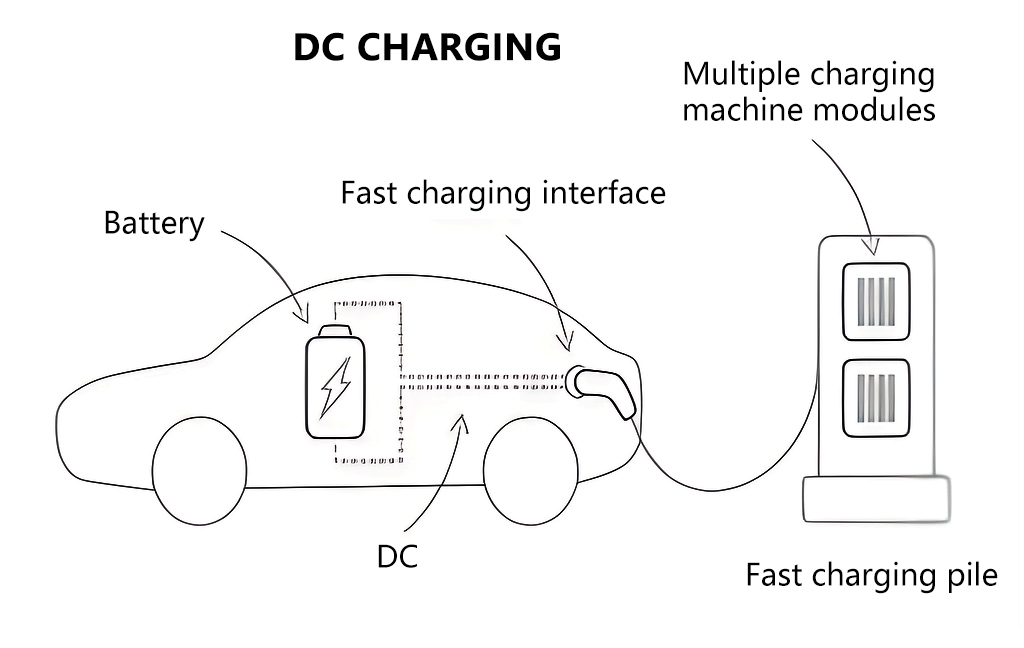


The Mini DC Fast EV Charger represents a transformative advancement in electric vehicle (EV) charging technology, combining efficiency, flexibility, and innovation. Below are its key benefits:
1. Rapid Charging Capability
Mini DC fast chargers deliver high-power direct current (DC) directly to the EV battery, bypassing the vehicle’s onboard charger (OBC). This eliminates power limitations imposed by traditional AC charging, enabling faster charging rates. For example, a 30 kW mini DC charger can replenish up to 80% battery capacity in 20–30 minutes, significantly reducing downtime for drivers .
2. Portability and Flexibility
Designed for mobility, these chargers are compact, lightweight, and often equipped with wheels for easy transportation. They are ideal for public spaces like shopping malls, workplaces, or emergency roadside assistance, where users typically spend extended periods (e.g., shopping or dining) . Their adaptability to diverse locations supports scalable EV adoption without requiring permanent infrastructure upgrades.
3. Simplified Vehicle Design
By integrating the DC-to-DC converter within the charger, mini DC fast chargers eliminate the need for onboard OBCs in EVs. This reduces vehicle complexity, lowers manufacturing costs, and enhances reliability—since OBCs are a common point of failure .
4. Smart and User-Friendly Features
Automated Processes: Features like RFID authentication, POS integration, and real-time monitoring streamline user interactions .
Compatibility: Supports multiple standards (e.g., CCS, CHAdeMo) and communication protocols (OCPP, 4G/WiFi), ensuring broad EV compatibility .
Safety Protocols: Advanced safeguards against overcurrent, overheating, and short circuits ensure safe operation .
5. Grid and Operational Efficiency
Mini DC chargers optimize energy use by adjusting charging rates based on grid demand. During off-peak hours, they can draw more power, reducing strain during peak periods. This bidirectional capability aligns with future Vehicle-to-Grid (V2G) systems, enhancing grid stability .
6. Cost-Effectiveness
Lower installation and maintenance costs compared to high-power DC fast chargers make mini DC solutions attractive for businesses and fleet operators. Their durability and minimal downtime further reduce long-term operational expenses .
7. Environmental and Economic Impact
By accelerating EV adoption, mini DC chargers contribute to reduced greenhouse gas emissions. For users, faster charging translates to lower energy costs and increased productivity, as less time is spent refueling .

